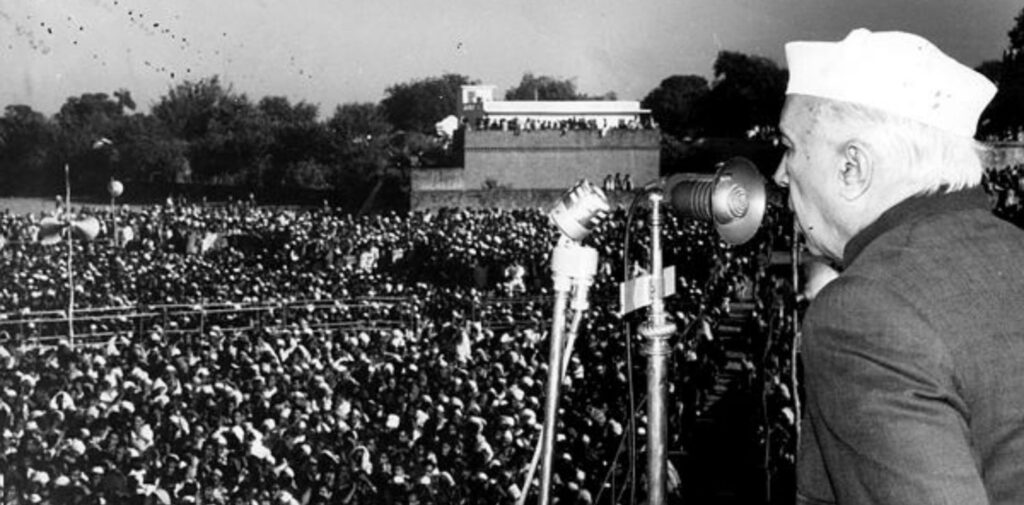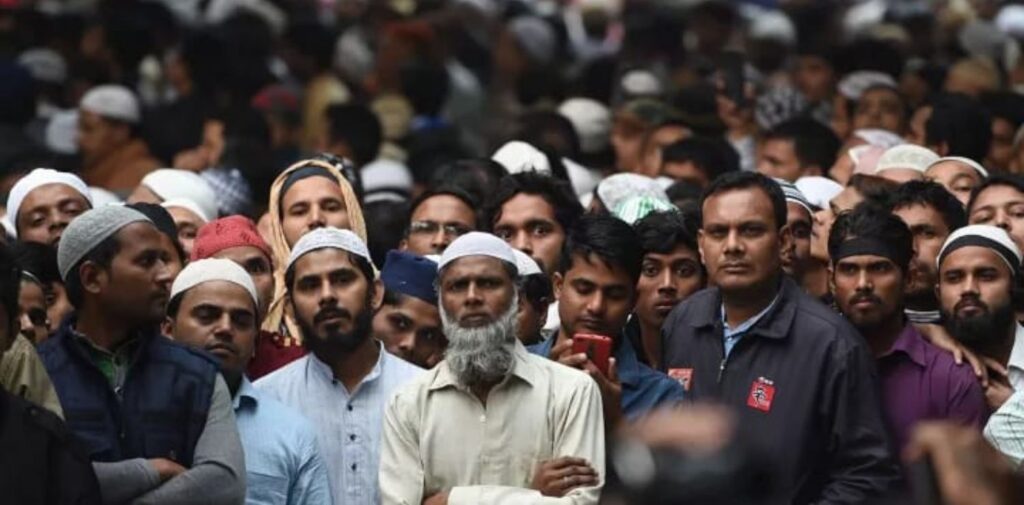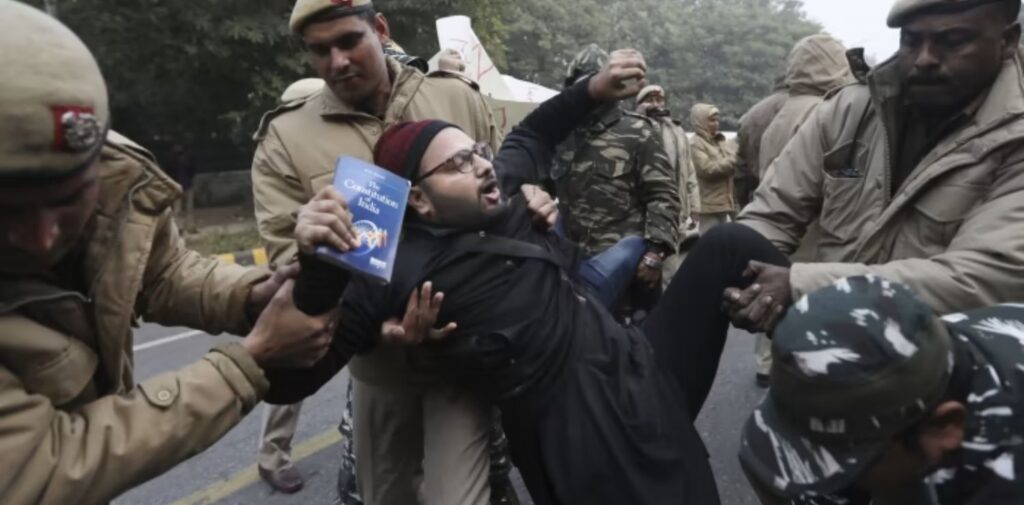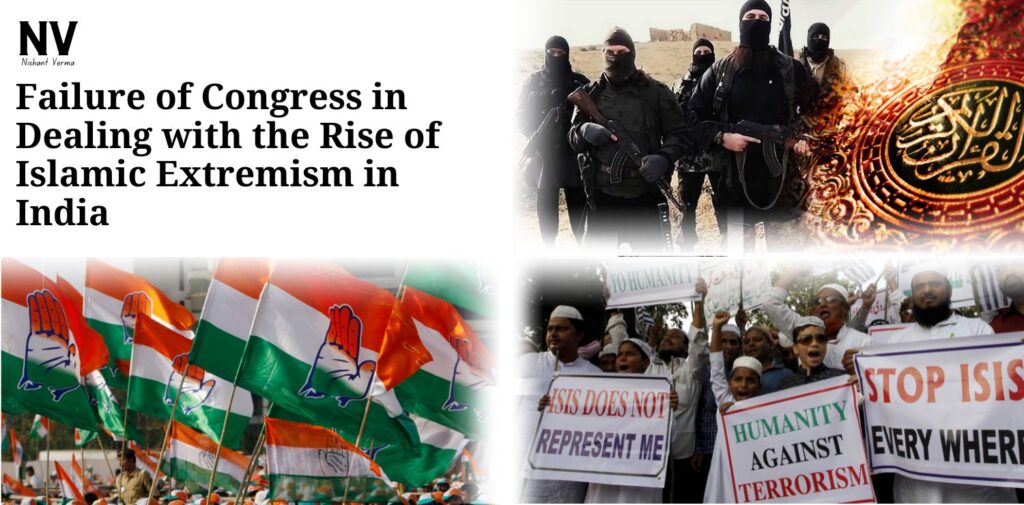India, a country known for its diversity and rich culture, has been struggling with various challenges throughout its history. One of the most pressing issues in recent years has been the rise of Islamic extremism. The spread of radical ideologies and violence in the name of religion has posed a significant threat to India’s social harmony, national security, and overall progress. While the issue has many complex factors, one thing is certain: the Congress Party has failed miserably in dealing with Islamic extremism in India. Their lack of decisive action, misplaced priorities, and political appeasement have only worsened the situation.
The Congress and Its Legacy of Appeasement
The Congress Party has ruled India for the majority of its post-independence years. However, during this time, they made one of the most disastrous political choices: appeasing certain religious communities for the sake of votes. In their bid to maintain power, the Congress leaders adopted policies that turned a blind eye to rising extremism within specific communities, most notably within the Muslim population. Rather than focusing on national security or the broader welfare of the country, the Congress chose to protect its political interests by pandering to extremist elements.
This culture of appeasement began with Jawaharlal Nehru and continued through the decades. Nehru’s policies were rooted in the idea of “secularism” where he made compromises to appease religious groups, fearing the alienation of any one community. However, this idea of secularism became distorted under Congress, where they began to treat certain groups with undue leniency. This only fueled radicalism in the name of Islam, creating an environment where extremism was allowed to grow unchecked.

Failure to Act During Key Events
Congress failed to act during crucial incidents that marked the rise of Islamic extremism. One of the most significant events in this regard was the 1992 Babri Masjid demolition in Ayodhya. While the BJP and other right-wing parties may have played a role in the demolition, the Congress-led government at the time failed to act decisively to prevent the violence that followed. The subsequent riots and the rise of Hindu-Muslim tension only helped increase the divide within the country. The Congress was more focused on holding onto power than addressing the root causes of these tensions.
Fast forward to the 2000s, and the Congress leadership continued to fail the country when it came to dealing with Islamic radicalism. One of the most significant moments of this failure came after the 2008 Mumbai attacks. The terrorists who carried out this gruesome attack had ties to radical Islamic groups, and yet, the Congress government at the time failed to take any meaningful action against such groups. Instead of addressing the rise of radical elements within the Muslim community, Congress chose to blame external factors or simply focus on damage control. This indecisiveness only encouraged further extremism, as it became clear that the government was unwilling to take strong action.
Congress and the “Minority Vote Bank” Politics
Another major failure of the Congress Party in handling Islamic extremism has been their obsession with the “minority vote bank.” Congress has historically relied on Muslim votes to maintain its political strength. However, this has led to a dangerous path of pandering to extremists. The party’s failure to distinguish between the Muslim community as a whole and the radical elements within it has only fueled extremism.
The Congress leadership, rather than recognizing the growing threat posed by radical Islamic elements, chose to appeal to their vote bank by making populist promises. This included offering reservations, waiving off loans, and even giving religious concessions that directly benefitted the extremists in the community. The Congress leadership believed that these moves would secure Muslim votes, but in doing so, they neglected the rise of radicalism within the community.
The result of this vote bank politics was devastating. It allowed radical ideologies to fester unchecked, and extremist elements felt emboldened. The Congress, blinded by the short-term goal of securing votes, failed to recognize the long-term damage they were causing to the country’s social fabric. The rise of radical Islam became a ticking time bomb, which exploded in the form of terror attacks, riots, and a deepened divide between communities.

Lack of Strong National Security Measures
India, as a nation, faces constant threats from both internal and external sources. In the case of Islamic extremism, Congress failed to take strong action to secure the country. The party’s policies were weak, and their response to terrorism and radicalization was often reactive, rather than proactive. When the UPA government (led by Congress) was in power, national security concerns were often sidelined in favour of political expediency.
For example, while India faced numerous terrorist attacks, such as the 26/11 attacks in Mumbai and multiple bombings across cities, Congress’s response was either delayed or ineffective. The intelligence and law enforcement agencies were not given enough power or resources to deal with the growing threat of radicalization. Rather than focusing on cracking down on Islamic extremism, the Congress government seemed more concerned with maintaining diplomatic ties with countries that were harbouring terror groups, such as Pakistan.
Furthermore, the Congress-led UPA government lacked a coherent counter-terrorism strategy. It failed to create a national narrative against terrorism that could unite the people. Without this, extremist groups continued to grow and radicalize more individuals, especially youth. The lack of action on national security under Congress directly contributed to the growing influence of Islamic radicalism in India.
The Betrayal of Secularism
Ironically, Congress prided itself on being the party of secularism, but its actions betrayed the very essence of this principle. Secularism is about ensuring equal rights and opportunities for all citizens, irrespective of their religion. However, Congress’s selective appeasement of certain communities led to a skewed and incomplete form of secularism that neglected the rise of extremism.
Secularism under Congress became more about political convenience rather than real values. In their pursuit of maintaining power, Congress leaders often ignored the growing radicalization within the Muslim community, hoping that it would pass. By doing this, they allowed a small group of extremists to hijack the narrative and further divide India. This abandonment of genuine secular principles allowed the rise of Islamic extremism, with little resistance from the political establishment.

Conclusion: Islamic Extremism in India
The rise of Islamic extremism in India is a serious issue, and Congress’s failure to address it cannot be ignored. Their obsession with vote bank politics, coupled with their inability to take strong action on national security and extremism, has led to a dangerous situation for the country. India’s democracy and secular fabric have been tested, but Congress has not lived up to the challenge. Instead of taking decisive action, they have allowed Islamic radicalism to spread, putting the security of the nation at risk.
It is time for Congress to take responsibility for its role in allowing extremism to grow unchecked. The failure to act on this issue has led to far-reaching consequences that affect the safety, security, and unity of the nation. For India to move forward and secure a peaceful future, the Congress Party must be held accountable for its disastrous failure in handling Islamic extremism. The country deserves leadership that puts national interests ahead of political gain and works to address the roots of extremism, rather than pretending it doesn’t exist.




